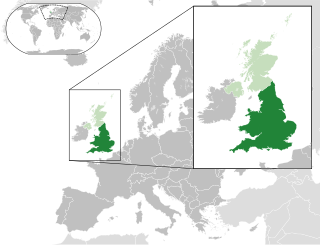
In common usage, theft is the taking of another person's property or services without that person's permission or consent with the intent to deprive the rightful owner of it. The word is also used as an informal shorthand term for some crimes against property, such as burglary, embezzlement, larceny, looting, robbery, shoplifting, library theft, and fraud. In some jurisdictions, theft is considered to be synonymous with larceny; in others, theft has replaced larceny. Someone who carries out an act of or makes a career of theft is known as a thief. The act of theft is also known by other terms such as stealing, thieving, and filching.
Forgery is a white-collar crime that generally refers to the false making or material alteration of a legal instrument with the specific intent to defraud anyone. Tampering with a certain legal instrument may be forbidden by law in some jurisdictions but such an offense is not related to forgery unless the tampered legal instrument was actually used in the course of the crime to defraud another person or entity. Copies, studio replicas, and reproductions are not considered forgeries, though they may later become forgeries through knowing and willful misrepresentations.

The Theft Act 1968 is an Act of the Parliament of the United Kingdom. It creates a number of offences against property in England and Wales. On 15 January 2007 the Fraud Act 2006 came into force, redefining most of the offences of deception.

The Theft Act 1978 is an Act of the Parliament of the United Kingdom. It supplemented the earlier deception offences contained in sections 15 and 16 of the Theft Act 1968 by reforming some aspects of those offences and adding new provisions. See also the Fraud Act 2006.
False accounting is a statutory offence in England and Wales, Northern Ireland and the Republic of Ireland.
Conspiracy to defraud is an offence under the common law of England and Wales and Northern Ireland.
Property crime is a category of crime that includes, among other crimes, burglary, larceny, theft, motor vehicle theft, arson, shoplifting, and vandalism. Property crime is a crime to obtain money, property, or some other benefit. This may involve force, or the threat of force, in cases like robbery or extortion. Since these crimes are committed in order to enrich the perpetrator they are considered property crimes. Crimes against property are divided into two groups: destroyed property and stolen property. When property is destroyed, it could be called arson or vandalism. Examples of the act of stealing property is robbery or embezzlement.
Making off without payment is a statutory offence in England and Wales, Northern Ireland and the Republic of Ireland. It was first introduced on the recommendation of the Criminal Law Revision Committee and is intended to protect legitimate business concerns and applies where goods are supplied or a service is performed on the basis that payment will be made there and then. Examples are a "dine and dash" customer in a restaurant where the meal is supplied on the understanding that the bill will be paid before the diner leaves; a taxi passenger who runs off without paying the fare at the end of the journey; and a motorist who fills up with petrol at a garage and drives off when the attendant is distracted. For these purposes, it must be proved that the defendant knew that payment on the spot was required or expected, and made off dishonestly with intent to avoid payment of the amount due.
Obtaining pecuniary advantage by deception was formerly a statutory offence in England and Wales and Northern Ireland. However, the offence still subsists in certain other common law jurisdictionswhich have copied the English criminal model.

The Serious Crime Act 2007 is an Act of the Parliament of the United Kingdom that makes several radical changes to English criminal law. In particular, it creates a new scheme of serious crime prevention orders to frustrate crime in England and Wales and in Northern Ireland, replaces the common law crime of incitement with a statutory offence of encouraging or assisting crime, makes provision as to disclosure and information sharing in order to prevent fraud, and abolishes the Assets Recovery Agency creating a new regime for the recovery of the proceeds of crime.
Obtaining property by deception was formerly a statutory offence in England and Wales and Northern Ireland.
Burglary is a statutory offence in England and Wales.
Prostitution in Northern Ireland is governed by the Human Trafficking and Exploitation Act 2015, which makes it illegal to pay for sex in Northern Ireland. Prior to the act coming into effect, prostitution in Northern Ireland was regulated by the same or similar laws to those in England and Wales, as it is elsewhere in the United Kingdom. At that time, prostitution in Northern Ireland was legal subject to a number of restraints which controlled certain activities associated with prostitution, such as soliciting, procuring, living on the proceeds of prostitution (pimping), exploitation of prostitutes, under-age prostitution, and keeping a brothel. However, devolution provided the opportunity for separate legislation in Northern Ireland.
Abstracting electricity is a statutory offence in England and Wales, Northern Ireland and the Republic of Ireland.
Removing article from place open to the public is a statutory offence in England and Wales and Northern Ireland.
Obtaining a money transfer by deception was formerly a statutory offence in England and Wales and Northern Ireland.
Obtaining services by deception is a statutory offence in the Republic of Ireland. It has been abolished in England and Wales and Northern Ireland.
Assault with intent to resist arrest is a statutory offence of aggravated assault in England and Wales and Northern Ireland and the Republic of Ireland.
The Criminal Justice Act, 2001 updates and consolidates the law relating to dishonesty and fraud in the Republic of Ireland.



